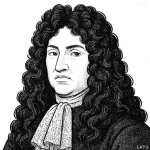“A tyrant must put on the appearance of uncommon devotion to religion. Subjects are less apprehensive of illegal treatment from a ruler whom they consider god-fearing and pious. On the other hand, they do less easily move against him, believing that he has the gods on his side.”

- 384 BC – 322 BC
- Originating from Macedonia in ancient Greece
- Philosopher and scientist, founder of the Lyceum academy
table of contents
Quote
“A tyrant must put on the appearance of uncommon devotion to religion. Subjects are less apprehensive of illegal treatment from a ruler whom they consider god-fearing and pious. On the other hand, they do less easily move against him, believing that he has the gods on his side.”
Explanation
In this quote, Aristotle reflects on the strategies used by tyrants to maintain power and control over their subjects. A tyrant, according to Aristotle, can manipulate the public’s perception by appearing religious or pious, which can help to shield them from scrutiny and rebellion. By presenting themselves as god-fearing, a ruler can create the impression that they are not only just but also divinely sanctioned, making it harder for subjects to question or challenge their actions. When a ruler is seen as having the gods’ favor, their subjects are less likely to resist or take action against them, as they might fear acting against someone protected or blessed by the divine.
This concept is still relevant in political strategy today, where leaders and authoritarians may use religious imagery or align themselves with religious institutions to consolidate power and influence. In many cultures, religion plays a powerful role in shaping the legitimacy of political authority. By associating themselves with religious values or divine will, rulers can gain a sense of moral authority that makes their actions seem more just or unquestionable, even if their behavior contradicts the values they promote.
For example, political leaders in various historical regimes have claimed divine right or used religious language to justify their actions, effectively reducing public opposition. The use of religion as a tool for political legitimacy serves to silence critics and strengthen the ruler’s position by cultivating an aura of divinity that discourages resistance. Aristotle’s insight shows how manipulation of religious belief can be an effective way for rulers, particularly tyrants, to control and suppress potential uprisings or challenges to their authority.
Would you like to share your impressions or related stories about this quote in the comments section?



